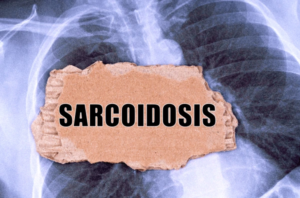
Sarcoidosis is a condition where inflammation develops in various organs, often affecting the lungs, skin, and lymph nodes. While its exact cause remains unknown, understanding the factors that influence the success of sarcoidosis treatment is essential for patients. Let’s take a closer look at what determines the effectiveness of treatment for this complex disease.
- Early Diagnosis and Intervention
The success of sarcoidosis treatment largely depends on how quickly it is diagnosed. Early detection is crucial as it allows doctors to start treatment at the right time, preventing the disease from progressing. Early intervention helps reduce complications and increases the chances of managing symptoms effectively. For example, if diagnosed early, what is the best treatment for cardiac sarcoidosis can be initiated promptly, lowering the risk of serious heart complications.
- Type of Sarcoidosis
Sarcoidosis can affect various organs, and treatment plans vary depending on the organ involved. The best treatment for cardiac sarcoidosis, for example, often includes medications like corticosteroids, immunosuppressants, or antiarrhythmic drugs to manage heart function and inflammation. On the other hand, pulmonary sarcoidosis may require lung-specific treatments. Understanding the organ involved is essential for doctors to determine the most effective treatment plan.
- Severity of the Disease
The severity of sarcoidosis also influences the outcome of treatment. Mild cases may only require monitoring and basic treatment, while more severe cases, especially those affecting organs like the heart or lungs, need more aggressive interventions. For those with severe forms of the disease, early and targeted treatments are critical to minimize long-term damage and complications.
- Response to Medication
The way a patient’s body responds to medications is another key factor. Sarcoidosis treatment often involves medications like corticosteroids, which work to reduce inflammation. However, patients may respond differently to these medications, and side effects could require adjustments to the treatment plan. If a patient does not respond well to one treatment, doctors may need to explore alternatives or additional medications to improve the treatment’s effectiveness.
- Lifestyle Modifications
Adopting a healthy lifestyle can enhance the success of sarcoidosis treatment. Patients are encouraged to maintain a balanced diet, exercise, and manage stress levels. These changes can improve overall health and make the body more receptive to the prescribed treatments. Avoiding smoking and limiting exposure to irritants, especially when the lungs are affected, is also crucial for improving outcomes.
- Regular Monitoring and Follow-up Care
The effectiveness of sarcoidosis treatment can be greatly improved with regular follow-up appointments. These visits help doctors track the progression of the disease, monitor treatment response, and make necessary adjustments. Regular check-ups ensure early detection of complications, like issues with the heart or lungs, which can significantly influence treatment success.
- Personalized Treatment Approach
Each case of sarcoidosis is different, so personalized treatment is often the best approach. A tailored treatment plan considers the patient’s specific condition, symptoms, and how their body responds to medications. The goal is to create a comprehensive plan that works for the individual, addressing both the physical and emotional aspects of managing sarcoidosis.
Final Remarks:
The success of sarcoidosis treatment depends on various factors, including early diagnosis, personalized treatment plans, and regular monitoring. At FLASS (Florida Lung, Asthma & Sleep Specialists), we are committed to providing the best care for sarcoidosis patients, helping them manage their condition effectively. If you are seeking answers about what is sarcoidosis treatment or want to learn about its treatment options, reach out to FLASS today. Our team of experts is here to guide you on your journey to better health.


